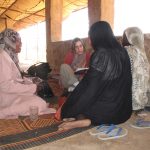For more than 30 years, PHR has conducted forensic investigations, local capacity development, pioneering research, and advocacy on behalf of sexual violence survivors in some of the most challenging environments – the former Yugoslavia, the Central African Republic (CAR), the Democratic Republic of the Congo (DRC), Iraq, Sierra Leone, and Sudan/Chad, among others.
We and our partners have trained thousands of people around the world in forensic medical documentation of torture and/or sexual violence based on the Istanbul Protocol, the UN standard for torture documentation that PHR initiated and co-authored. Many of these trainings have contributed directly to justice for survivors of sexual violence.
Through all these initiatives, PHR has developed a deep understanding of the trauma experienced by sexual violence survivors in conflict and their complex needs, including their right to comprehensive justice. Here are some of the places where PHR conducted ground-breaking research and investigations:
Chad and Darfur, Sudan
Sexual violence and rape have become all too common in the lives of women in Darfur, Sudan, where decades of war have killed hundreds of thousands of people and displaced millions more. Many people were raped in the torrent of violence that forced them to flee their villages; many others were raped in refugee camps in Chad where they had sought safe haven.
PHR led three investigations to document these crimes. “The Use of Rape as a Weapon of War in the Conflict in Darfur, Sudan” revealed the widespread use of rape by Sudanese security forces and their allied militias, known as the Janjaweed. Forty percent of women interviewed in PHR’s study “Darfur: Assault on Survival” said that they had either been a victim of or a witness to sexual assault during the attacks on their villages. The report delved into the social toll of rape, showing how survivors in a conservative Muslim society suffer stigma and shame. “Nowhere to Turn: Failure to Protect, Support and Assure Justice for Darfuri Women” documented the scope and long-term impact of rape and other sexual violence experienced by these women. The International Criminal Court cited PHR’s documentation of war crimes in Darfur in its 2009–2010 proceedings.
Sierra Leone
PHR’s groundbreaking study “War-Related Sexual Violence in Sierra Leone: A Population-based Assessment” was one of the first to scientifically document the extent of sexual violence as a result of war.
Sierra Leone’s decade-long conflict in the 1990s and early 2000s was one of the deadliest in recent history and was marked by an extraordinary level of brutal human rights abuses, including sexual assault of women and men, torture, forced labor, shootings, and amputations. An alarming 94 percent of 991 households of internally displaced persons randomly surveyed by PHR and the United Nations Assistance Mission in Sierra Leone (UNAMSIL) reported among its members at least one of these serious abuses during ten years of conflict.
Kashmir, India
The psychological toll of rape includes anxiety, depression, nightmares, social phobias, physical complaints, and post-traumatic stress disorder. In “Rape in Kashmir: A Crime of War,” PHR documented how Indian security forces and militant forces in Kashmir used rape to punish, intimidate, coerce, humiliate, and degrade their female victims.
Afghanistan
In addition to rape, women in conflict often face other forms of gender-based violence. In “The Taliban’s War on Women – A Health and Human Rights Crisis in Afghanistan,” PHR helped bring the plight of that country’s women to the world’s attention. PHR documented how the regime’s restrictions on women’s access to medical care, education, and employment created a dire health and human rights crisis. In a subsequent report, “Women’s Health and Human Rights in Afghanistan: A Population-Based Assessment” PHR revealed attitudes on women’s rights to education and work opportunities, freedom of expression, participation in government, and legal protection for their human rights.

